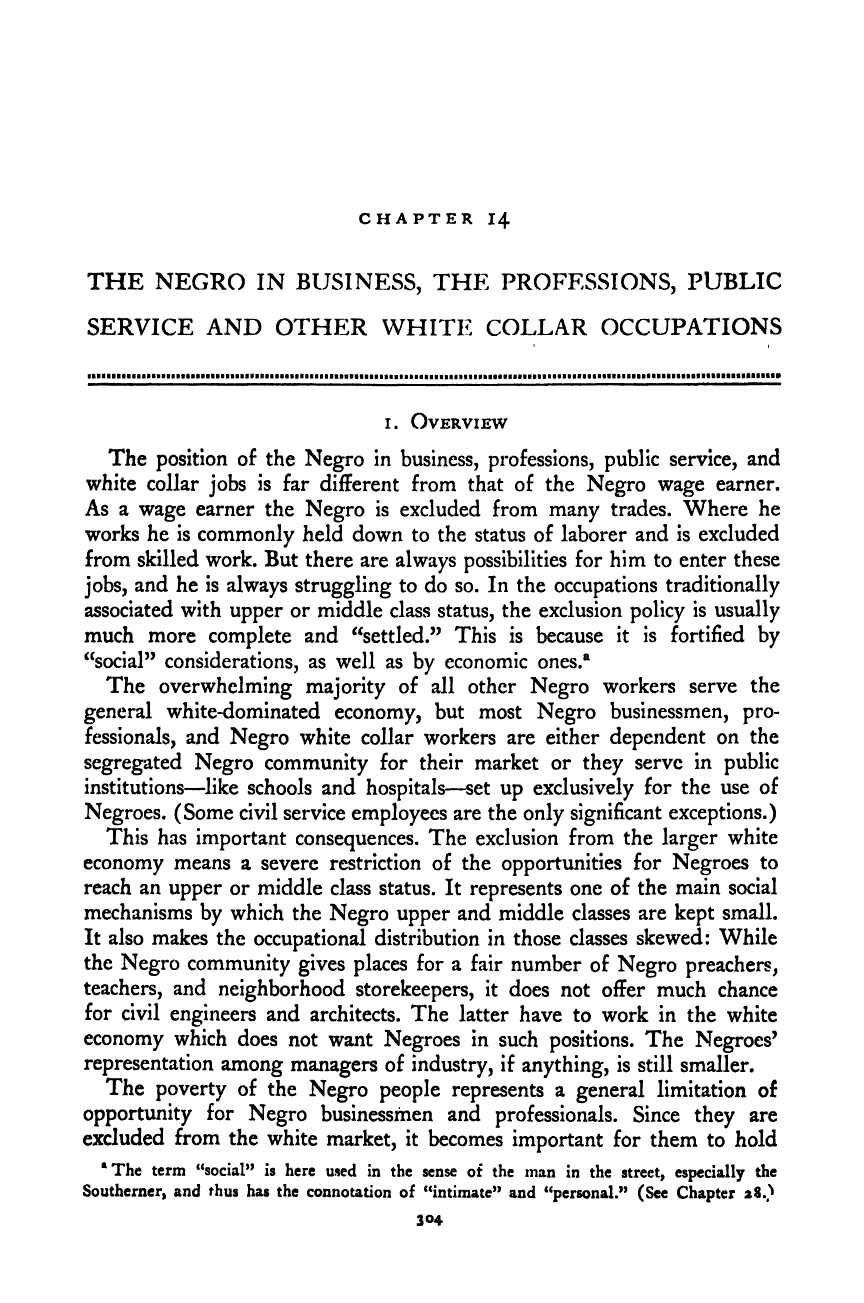Note: Gunnar Myrdal died in 1987, less than 70 years ago. Therefore, this work is protected by copyright, restricting your legal rights to reproduce it. However, you are welcome to view it on screen, as you do now. Read more about copyright.
Full resolution (TIFF) - On this page / på denna sida - IV. Economics - 14. The Negro in Business, the Professions, Public Service and Other White Collar Occupations - 1. Overview

<< prev. page << föreg. sida << >> nästa sida >> next page >>
Below is the raw OCR text
from the above scanned image.
Do you see an error? Proofread the page now!
Här nedan syns maskintolkade texten från faksimilbilden ovan.
Ser du något fel? Korrekturläs sidan nu!
This page has never been proofread. / Denna sida har aldrig korrekturlästs.
CHAPTER 14
THE NEGRO IN BUSINESS, THE PROFESSIONS, PUBLIC
SERVICE AND OTHER WHITE COLLAR OCCUPATIONS
I. Overview
The position of the Negro in business, professions, public service, and
white collar jobs is far different from that of the Negro wage earner.
As a wage earner the Negro is excluded from many trades. Where he
works he Is commonly held down to the status of laborer and Is excluded
from skilled work. But there are always possibilities for him to enter these
jobs, and he is always struggling to do so. In the occupations traditionally
associated with upper or middle class status, the exclusion policy is usually
much more complete and “settled.” This is because it is fortified by
“social” considerations, as well as by economic ones.®
The overwhelming majority of all other Negro workers serve the
general white-dominated economy, but most Negro businessmen, pro-
fessionals, and Negro white collar workers are either dependent on the
segregated Negro community for their market or they serve in public
institutions—^like schools and hospitals—^set up exclusively for the use of
Negroes. (Some civil service employees are the only significant exceptions.)
This has important consequences. The exclusion from the larger white
economy means a severe restriction of the opportunities for Negroes to
reach an upper or middle class status. It represents one of the main social
mechanisms by which the Negro upper and middle classes are kept small.
It also makes the occupational distribution in those classes skewed: While
the Negro community gives places for a fair number of Negro preachers,
teachers, and neighborhood storekeepers, it does not offer much chance
for civil engineers and architects. The latter have to work in the white
economy which does not want Negroes in such positions. The Negroes^
representation among managers of industry, if anything, is still smaller.
The poverty of the Negro people represents a general limitation of
opportunity for Negro businessmen and professionals. Since they are
excluded from the white market, it becomes important for them to hold
* The term “social” is here used in the sense of the man in the street, especially the
Southerner, and thus has the connotation of “intimate” and “personal.” (See Chapter 28.)
304
<< prev. page << föreg. sida << >> nästa sida >> next page >>